detail profile kamatari fujiwara
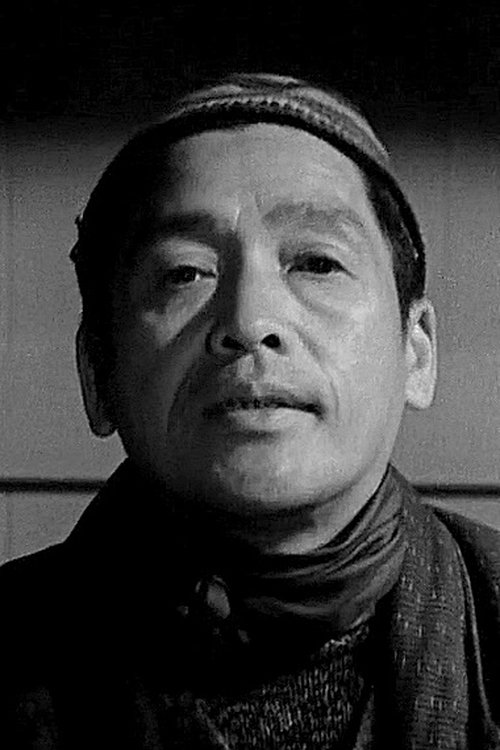
Kamatari Fujiwara
藤原 釜足
atau dikenal sebagai
Riwayat Hidup
Kamatari Fujiwara (藤原 釜足 Fujiwara Kamatari, January 15, 1905 - December 21, 1985) was a Japanese actor.
Fujiwara was born in Tokyo, on January 15, 1905, in Tokyo, Japan.
Fujiwara's parents ran a printing business.
The business did not go well, so at the age of 10, Fujiwara started working at a local confectionery store.
By the age of 14 he had started selling timber for building and manufacturing in Shizuoka prefecture.
A year later he returned to Tokyo to study as a pharmacist.
Fukiwara worked regularly and extensively with Akira Kurosawa, and was known for both being adept at comic acting, as well as being able to do serious roles.
Info Pribadi
Peran Yang Di Mainkan Kamatari Fujiwara
 A highschool girl inherits a declining...
A highschool girl inherits a declining...Sailor Suit and Machine Gun 1981
A high-school girl inherits a declining yakuza organization, which seeks to repair its fortunes under her leadership.
 Akira Kurosawas lauded feudal epic presents...
Akira Kurosawas lauded feudal epic presents...Kagemusha 1980
Akira Kurosawa's lauded feudal epic presents the tale of a petty thief who is recruited to impersonate Shingen, an aging warlord, in order to avoid attacks by competing clans. When Shingen dies, his generals reluctantly agree to have the impostor take over as the powerful ruler. He soon begins to appreciate life as Shingen, but his commitment to the role is tested when he must lead his troops into battle against the forces of a rival warlord.
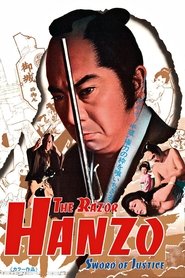 Fearless Edoperiod police inspector Hanzo Itami...
Fearless Edoperiod police inspector Hanzo Itami...Hanzo the Razor: Sword of Justice 1972
Fearless Edo-period police inspector Hanzo Itami, nicknamed The Razor, has developed his own unique way of extracting information for his inquiries. His first adventure sees him investigating his superior officer's mistress, whom he suspects of having ties with a reputed criminal on the loose.
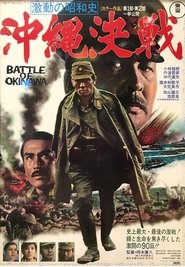 The Americans are swiftly closing on...
The Americans are swiftly closing on...The Battle of Okinawa 1971
The Americans are swiftly closing on Okinawa, an island just south of the Japanese mainland. The Imperial command sends top generals and several army divisions to defend it at all costs. The mission quickly degenerates as vital resources and troops are diverted to other islands. After a civilian evacuation ends in tragedy most of non-combatants are forced to remain on the island. Many convert to soldier status. Tokyo sends mixed messages that squander time and resources, as when they order the defenders to build an airstrip for aircraft that never come. The truth soon becomes obvious: the high command decides that the island cannot be held and effectively abandons the Okinawan defenders. When the Americans land many troops are deployed in the wrong places. As the slaughter mounts, a suicidal attitude takes hold. Okinawa becomes a death trap, for civilian volunteers and non-combatants as well.
 This film follows the daily lives...
This film follows the daily lives...Dodes'ka-den 1970
This film follows the daily lives of a group of people barely scraping by in a slum on the outskirts of Tokyo. Yet as desperate as their circumstances are, each of them—the homeless father and son envisioning their dream house; the young woman abused by her uncle; the boy who imagines himself a trolley conductor—finds reasons to carry on.
 Aspiring to an easy job as...
Aspiring to an easy job as...Red Beard 1965
Aspiring to an easy job as personal physician to a wealthy family, Noboru Yasumoto is disappointed when his first post after medical school takes him to a small country clinic under the gruff doctor Red Beard. Yasumoto rebels in numerous ways, but Red Beard proves a wise and patient teacher. He gradually introduces his student to the unglamorous side of the profession, ultimately assigning him to care for a prostitute rescued from a local brothel.
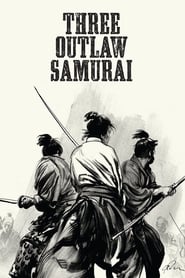 Shiba a wandering ronin encounters a...
Shiba a wandering ronin encounters a...Three Outlaw Samurai 1964
Shiba, a wandering ronin, encounters a band of peasants who have kidnapped the daughter of their dictatorial magistrate, in hopes of coercing from him a reduction in taxes. Shiba takes up their fight, joined by two renegades from the magistrate's guard, Sakura and Kikyo. The three outlaws find themselves in a battle to the death.
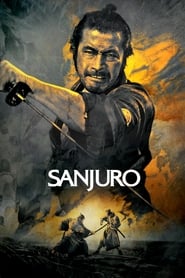 Toshiro Mifune swaggers and snarls to...
Toshiro Mifune swaggers and snarls to...Sanjuro 1962
Toshiro Mifune swaggers and snarls to brilliant comic effect in Kurosawa's tightly paced, beautifully composed "Sanjuro." In this companion piece and sequel to "Yojimbo," jaded samurai Sanjuro helps an idealistic group of young warriors weed out their clan's evil influences, and in the process turns their image of a proper samurai on its ear.
 A nameless ronin or samurai with...
A nameless ronin or samurai with...Yojimbo 1961
A nameless ronin, or samurai with no master, enters a small village in feudal Japan where two rival businessmen are struggling for control of the local gambling trade. Taking the name Sanjuro Kuwabatake, the ronin convinces both silk merchant Tazaemon and sake merchant Tokuemon to hire him as a personal bodyguard, then artfully sets in motion a full-scale gang war between the two ambitious and unscrupulous men.
 In this loose adaptation of Hamlet...
In this loose adaptation of Hamlet...The Bad Sleep Well 1960
In this loose adaptation of "Hamlet," illegitimate son Kôichi Nishi climbs to a high position within a Japanese corporation and marries the crippled daughter of company vice president Iwabuchi. At the reception, the wedding cake is a replica of their corporate headquarters, but an aspect of the design reminds the party of the hushed-up death of Nishi's father. It is then that Nishi unleashes his plan to avenge his father's death.
 In Osakas slum youths without futures...
In Osakas slum youths without futures...The Sun's Burial 1960
In Osaka's slum, youths without futures engage in pilfering, assault and robbery, prostitution, and the buying and selling of identity cards and of blood. Alliances constantly shift. Tatsu and Takeshi, friends since boyhood, reluctantly join Shin's gang. Shin's an upstart and moves his gang often to avoid the local kingpin. Hanoko is a young woman with ambitions: first she's in the blood business with her father, then she joins forces with Shin. She soon breaks off that partnership, even though she's taken the sensitive Takeshi under her wing. Double crosses multiply. Those with the closest bonds become each others' murderers.
 In feudal Japan during a bloody...
In feudal Japan during a bloody...The Hidden Fortress 1958
In feudal Japan, during a bloody war between clans, two cowardly and greedy peasants, soldiers of a defeated army, stumble upon a mysterious man who guides them to a fortress hidden in the mountains.
 Residents of a rundown boardinghouse in 19...
Residents of a rundown boardinghouse in 19...The Lower Depths 1957
Residents of a rundown boardinghouse in 19th-century Japan, including a mysterious old man and an aging actor, get drawn into a love triangle that turns violent. When amoral thief Sutekichi breaks off his affair with landlady Osugi to romance her younger sister, Okayo, Osugi extracts her revenge by revealing her infidelity to her jealous husband.
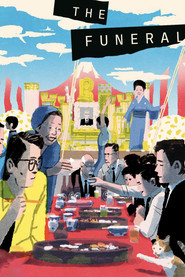 When Wabisukes fatherinlaw unexpectedly dies the...
When Wabisukes fatherinlaw unexpectedly dies the...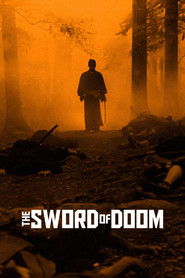 Ryunosuke a gifted swordsman plying his...
Ryunosuke a gifted swordsman plying his... In the midst of an attempt...
In the midst of an attempt... After their lord is tricked into...
After their lord is tricked into...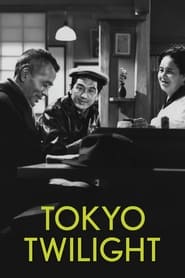 Two sisters find out the existence...
Two sisters find out the existence... A samurai answers a villages request...
A samurai answers a villages request...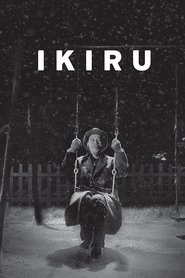 Kanji Watanabe is a middleaged man...
Kanji Watanabe is a middleaged man...